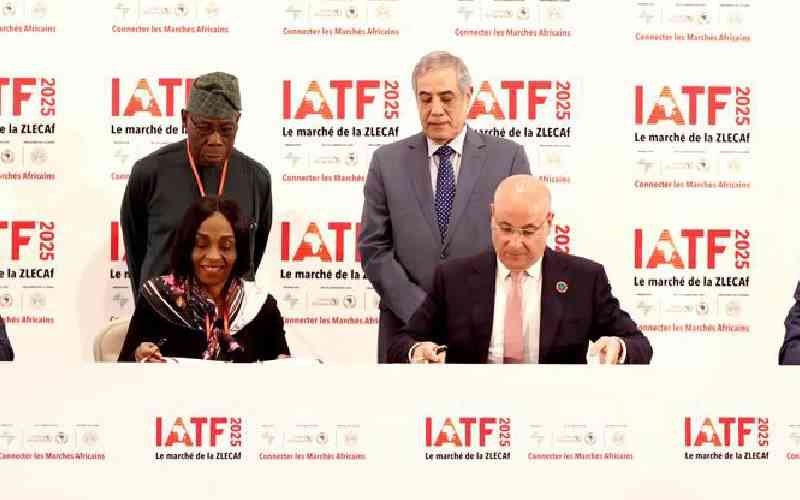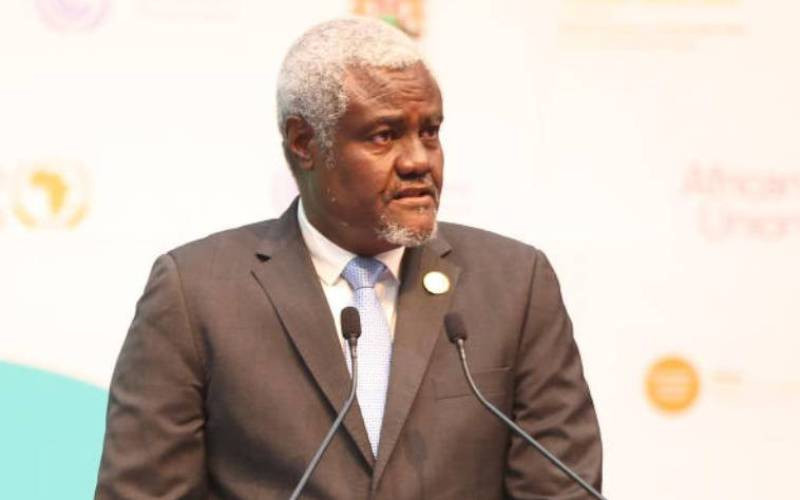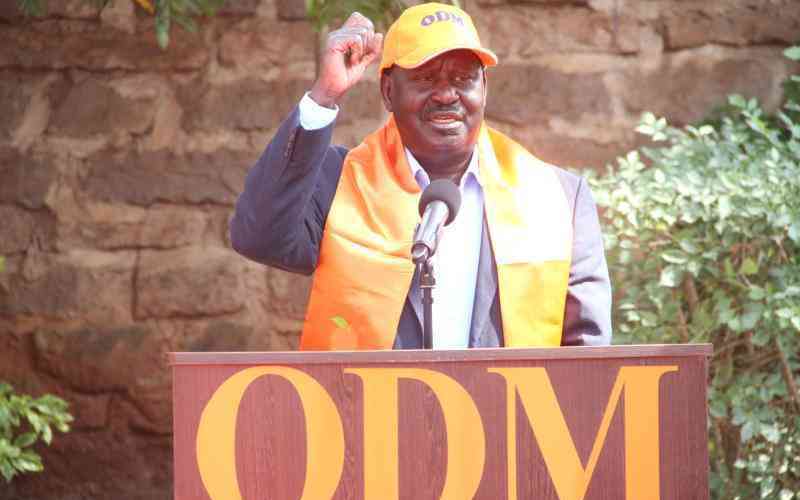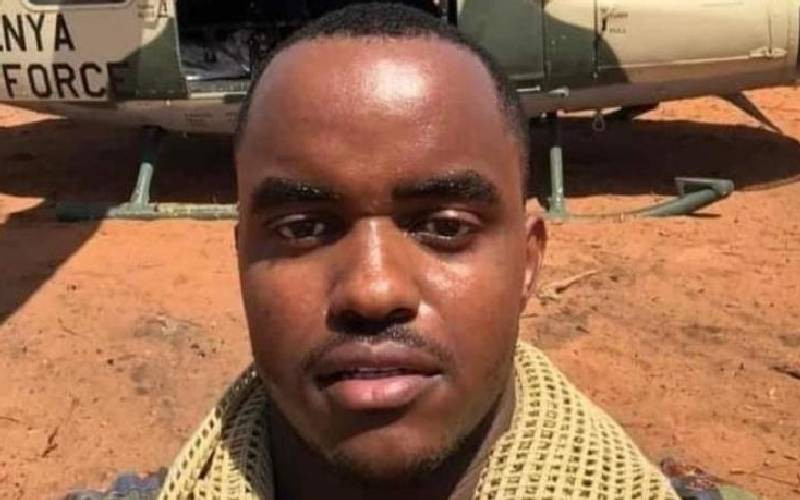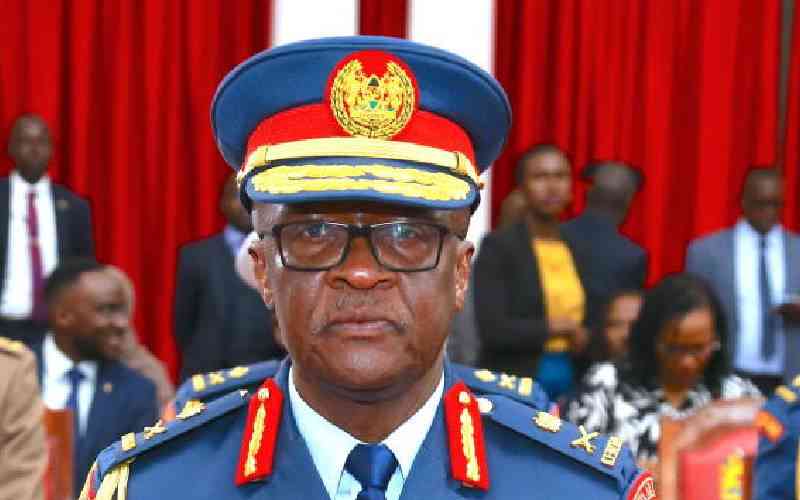By Juma Kwayera
The African Union plans to have standing army to intervene in increased conflicts on the continent.
However, some African countries where the rule of law and democracy is a challenge are reluctant to endorse the proposal regarded as the preliminary building blocks to an African super-state.
The proposal for a continental army gained pace five years ago following a new trend where perceived presidential losers perpetuated themselves in power through fraudulently crafted coalition governments.
AU Spokesman Eloi Yao confirmed the proposal is an initiative of the continental body’s Peace and Security Council.
It gained momentum following post-election violence in Kenya, Zimbabwe and Ivory Coast, which only ended with the formation of coalition governments.
The perceived subversion of democracy in the three countries precipitated a rethink of strategies of intervening in African conflicts.
Hitherto, the United States and former colonial powers stepped in to halt bloodletting, but such intervention helped to further the perceptions that western powers were violating territorial integrity of African states.
Formation of an African force was the subject of discussion during an international conference in Dakar, Senegal, last month. The conference on African conflicts coverage by the media was organised by AU public information unit.
Secession
Africa security expert, Capt (rtd) Simiyu Werunga explains that the decision to form a standing army has been on the cards for a long time, but its ratification faces resistance from regimes with questionable records on legitimacy. The thinking of African army is informed by the need for homegrown solutions to peace and security.
Werunga told The Standard On Saturday that plans to form an African army were given impetus by difficulties experienced in mobilising troops to take on Al Shaabab insurgents in Somalia.
Until Uganda and Burundi deployed 8,000 soldiers to fight the Al Shabaab Islamists three years ago, none of the countries that had initially indicated willingness contributed troops to African Union Mission in Somalia (Amisom).
These were Zambia, Nigeria, Morocco, Senegal, South Africa and Tanzania, among others. However, the resounding success of the current troop contributing countries – Kenya, Uganda, Djibouti, Burundi, and Sierra Leone – is helping to stabilise the war-ravaged Horn of Africa state.
The initiative comes at a time Africa is experiencing religious radicalisation and calls for secession in countries with poor human rights records, weak political and governance institutions and economic marginalisation are on the rise.
Stay informed. Subscribe to our newsletter
The formation of a standing force was made the agenda of an international conference held in Dakar, Senegal, last week.
The AU conference discussed security and conflicts in Africa with fears growing that democracy had been relegated to the backburner. The fears come on the back of new conflicts in Mali, Central African Republic, the Democratic Republic of Congo and Chad, among others.
Power-sharing
It is understood that the proposal to have continental force was mooted following disputed presidential election results in Kenya and Zimbabwe. With nations in West and Central Africa threatening to go the Kenya-way, the desire for a rapid response became urgent.
The two countries experimented with power-sharing, a model Ivory Coast nearly adopted after former President Laurent Gbagbo refused to relinquish power to then opposition leader Alassane Ouattara, winner of the presidential poll.
“The formation of an African Union standing army is work-in-progress. Its realisation depends on the willingness of the African governments to donate troops,” says Yao.
Asked about Kenya’s position on an African intervention force, Foreign Affairs Minister Sam Ongeri told The Standard On Saturday that he was aware of the proposal but had not been briefed adequately.
Prof Ongeri says plans for standing army are still in proposal form, but acknowledges the success Amisom troops had in Somalia had provided the required impetus to form a standing army.
“We have proposals. It has to be ratified by the summit – Heads of State meeting – for it to become a reality. I am not sure if it will be on the agenda of the next summit set for March,” says Ongeri.
Ordinary African Heads of State summits traditionally take place twice a year – in February or March at AU headquarters in Addis Ababa, Ethiopia.
It is then followed by a review conference in July or August in a country picked the first summit. The latter meeting is rotated geographically – south, north central, east and west.
Last year’s summit slated for Lilongwe in Malawi had to be relocated to Addis Ababa after President Joyce Banda warned that Sudanese President Omar al Bashir would be arrested to face trial for genocide crimes before the International Criminal Court.
Resistance
Troops under the mandate of the UN, code named Unamid (UN Mission in Darfur) from Rwanda, Nigeria, South Africa among other countries are currently in the troubled western providence to intervene in the conflict between Government-supported Janjaweed militiamen and rebel groups.
The resistance Unamid has faced from Khartoum casts doubts about whether the dream to have continental standing army will be realised.
It is also doubtful whether the African countries, notorious for falling behind subscriptions will have set aside enough financial resources to keep the force engaged in Africa’s myriad conflicts.
Currently, there are about 22 conflicts on the continent, besides violence that is experienced during chaotic elections.
Besides Darfur and Somalia, there are also full-scale wars and insurgencies in DRC, rebellion in southern Ethiopia, Libya uprising, the 50-year old liberation war involving the Polisario National Liberation Front against Morocco and Lord’s Resistance Army in northern Uganda.
The latest flashpoint is the rebellion in Mali, Boko Haram in northern Nigeria, the Mend rebellion in southern Nigeria’s Delta state, rebel war in Burundi, Sierra Leone, Eritrea’s territorial fight with Ethiopia, South Sudan against the north.
The continent is also grappling with insurgencies in Guinea Bissau, Equatorial Guinea and Ivory Coast.
Ongeri explains that the Amisom, Unamid and UN Mission in DR Congo (Monuc) have strong backing of the UN Security Council and are reviewed if and when it is necessary.
The mobilisation of troops for deployment in flashpoints is often frustrated by serious shortage of funding and developed countries’ avarice for African raw material, especially minerals, to power their industries.
Last month, the US unveiled an enhanced initiative to strengthen its Africa Command (Africom) programme to increase the capacity of countries on the continent to take charge of security and peacekeeping.
It is not clear whether the initiative is a precursor to formation of a standing army or a supplementary programme to the planned force.
Concerns about poor human rights records and stifled democracy traditionally rally African leaders against critics, hence fears that a standing army would rekindle memories the territorial integrity and non-interference in internal matters of an AU member-state agreement, which was the bane of the continental body’s predecessor, the Organisation of African Union.
 The Standard Group Plc is a
multi-media organization with investments in media platforms spanning newspaper
print operations, television, radio broadcasting, digital and online services. The
Standard Group is recognized as a leading multi-media house in Kenya with a key
influence in matters of national and international interest.
The Standard Group Plc is a
multi-media organization with investments in media platforms spanning newspaper
print operations, television, radio broadcasting, digital and online services. The
Standard Group is recognized as a leading multi-media house in Kenya with a key
influence in matters of national and international interest.
 The Standard Group Plc is a
multi-media organization with investments in media platforms spanning newspaper
print operations, television, radio broadcasting, digital and online services. The
Standard Group is recognized as a leading multi-media house in Kenya with a key
influence in matters of national and international interest.
The Standard Group Plc is a
multi-media organization with investments in media platforms spanning newspaper
print operations, television, radio broadcasting, digital and online services. The
Standard Group is recognized as a leading multi-media house in Kenya with a key
influence in matters of national and international interest.


